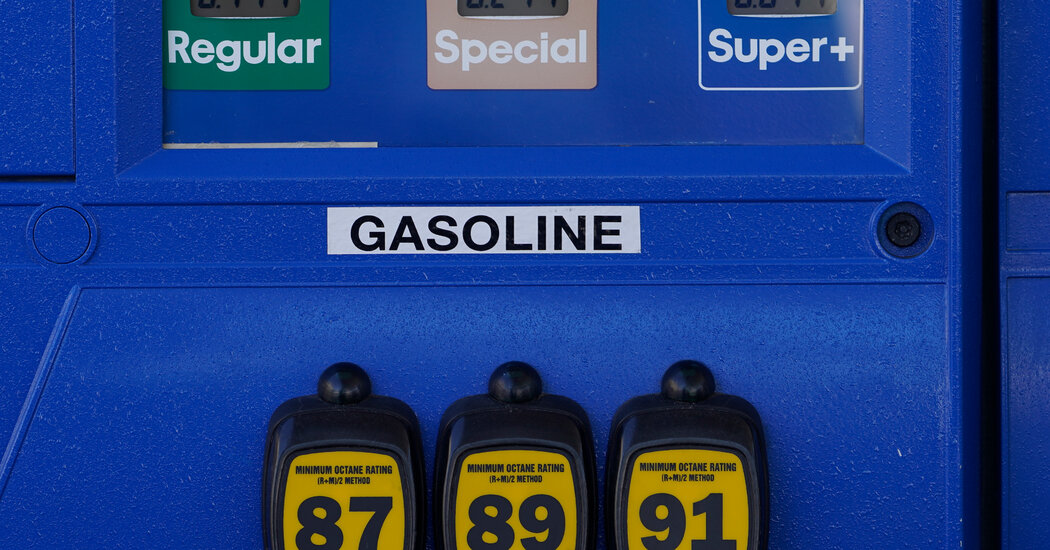
Oil prices jumped on Monday, as President Vladimir V. Putin’s saber-rattling order to put his country’s nuclear forces on high alert overshadowed hopes for negotiations between Russia and Ukraine.
The announcement by President Volodymyr Zelensky that a Ukrainian delegation would meet with a Russian delegation near the Ukraine-Belarus border for talks “without preconditions” was viewed skeptically by oil traders and most political analysts and Western officials.
Traders had not driven up prices in recent days because Western sanctions against Russia have so far not impeded the export of oil and natural gas to Western Europe. But the Brent oil benchmark soared by more than 5 percent Monday to nearly $103 a barrel while the American West Texas Intermediate benchmark climbed nearly as much to $96 a barrel.
American gasoline prices have risen about a penny a gallon every day over the last week, according to surveys by the AAA motor club. At $3.61 a gallon for regular gasoline, the national average is nearly a dollar higher than it was a year ago.
Risks of rising energy prices remain high as the Russians press on with their invasion of Ukraine. In the early days, the Russian offensive bogged down in the face of strong resistance from the Ukrainian armed forces and Ukrainian citizens.
Bombing and rockets could damage vital pipelines that run through Ukraine, though that has not happened yet. Some Republican leaders and members of Congress of both parties are pressing for tougher sanctions on energy transactions. Western oil companies may decide that doing business with Russia is not worth the risks, especially if Western technology and oil services are either hit with sanctions or because financial sanctions will impede Russian payments.
“Perhaps the greatest uncertainty will be the Russian response,” according to a report released by RBC Capital Markets on Sunday. “The central bank sanctions will sharply reduce Russia’s access to its foreign exchange reserve war chest and proceeds from oil sales in overseas accounts.”
The West’s tough economic stance against Russia is already having an effect. BP said on Sunday that it would “exit” its nearly 20 percent stake in Rosneft, the giant Russian company, and that it would remove its two representatives from the Rosneft board. It was a climactic retreat from the British-based company after three decades of doing business in Russia.
Ukraine’s gas pipeline operators said on Sunday that natural gas transmission that goes through the country to much of the rest of Europe was normal.
Another wild card will be Russia’s stance at a meeting on Wednesday of OPEC Plus, in which it is a partner with Saudi Arabia and other major producers. The group is meeting to discuss how much to increase production levels to ease global price increases. Washington so far has had little success in pressing the group to raise production.




